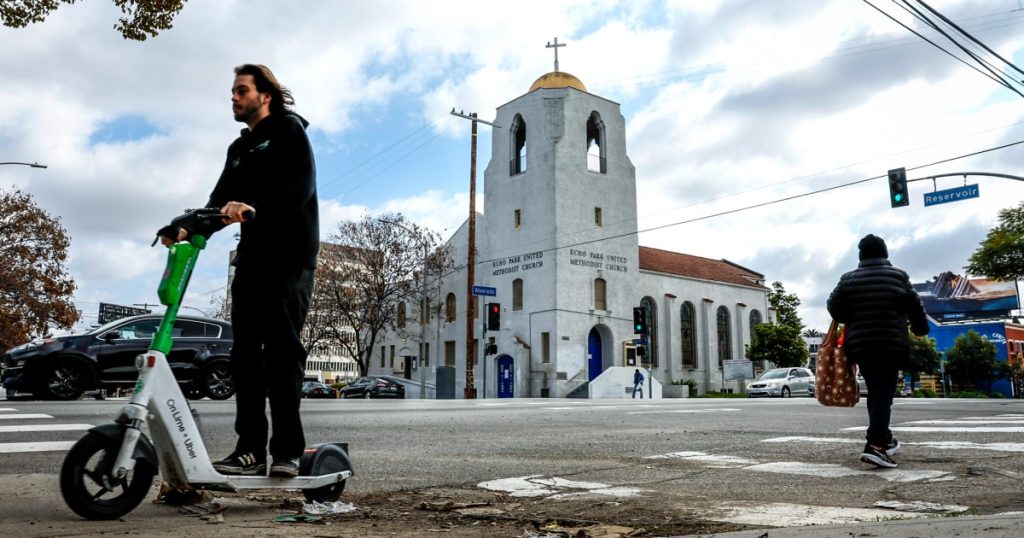Leaders of the United Methodist Church are gathering for an international conference to address divisive issues such as gay marriage, ordination of LGBTQ pastors, and a declining membership. Many congregations have left the church due to its more liberal stance on LGBTQ issues, leading to deep divisions and threats of further departures. The conference will vote on repealing bans on same-sex marriage and LGBTQ clergy ordination, as well as granting autonomy to more conservative congregations abroad.
The United Methodist Church has lost over 7,600 congregations, or about 25% of its total membership, in recent years due to disputes over LGBTQ rights and inclusivity. This loss of revenue has significantly impacted the church’s budget, resulting in reductions in pastors’ salaries. The proposed split of the church into different entities to address disagreements over same-sex marriage and gay clergy has been endorsed by LGBTQ activist JJ Warren as a way for each group to practice as they see fit.
The fragmented state of the United Methodist Church is drawing parallels to the period before the Civil War when the nation and the church were divided over slavery. Lead pastors like Glen Haworth, who want their churches to disaffiliate due to differing views on biblical interpretation and authority, are facing significant financial hurdles to leaving the denomination. The cost to disaffiliate, including fees based on property value and contributions to pension liabilities, is prohibitive for many congregations.
During the conference, leaders will also address policy changes abroad, as many UMC churches are located in Africa and Asia where there is a desire to disaffiliate due to perceived shifts in conservatism within the U.S. Church leaders may vote on regionalization, allowing different regions to govern themselves rather than following global directives. Haworth is hopeful that conference delegates will make it financially easier for churches to exit the UMC, providing relief for those who have been blocked from disaffiliation due to high costs.
Kimberly Scott, lead pastor of Grace United Methodist Church in Long Beach, California, sees the conference as an opportunity to secure more rights for LGBTQ individuals within the church. Descended from a family with ties to the church in the South during the period of slavery, Scott believes that all individuals should have a place at the table and that denying such inclusion is problematic. It remains to be seen how the United Methodist Church will navigate these divisive issues and address the challenges of maintaining unity while accommodating diverse beliefs and practices.


